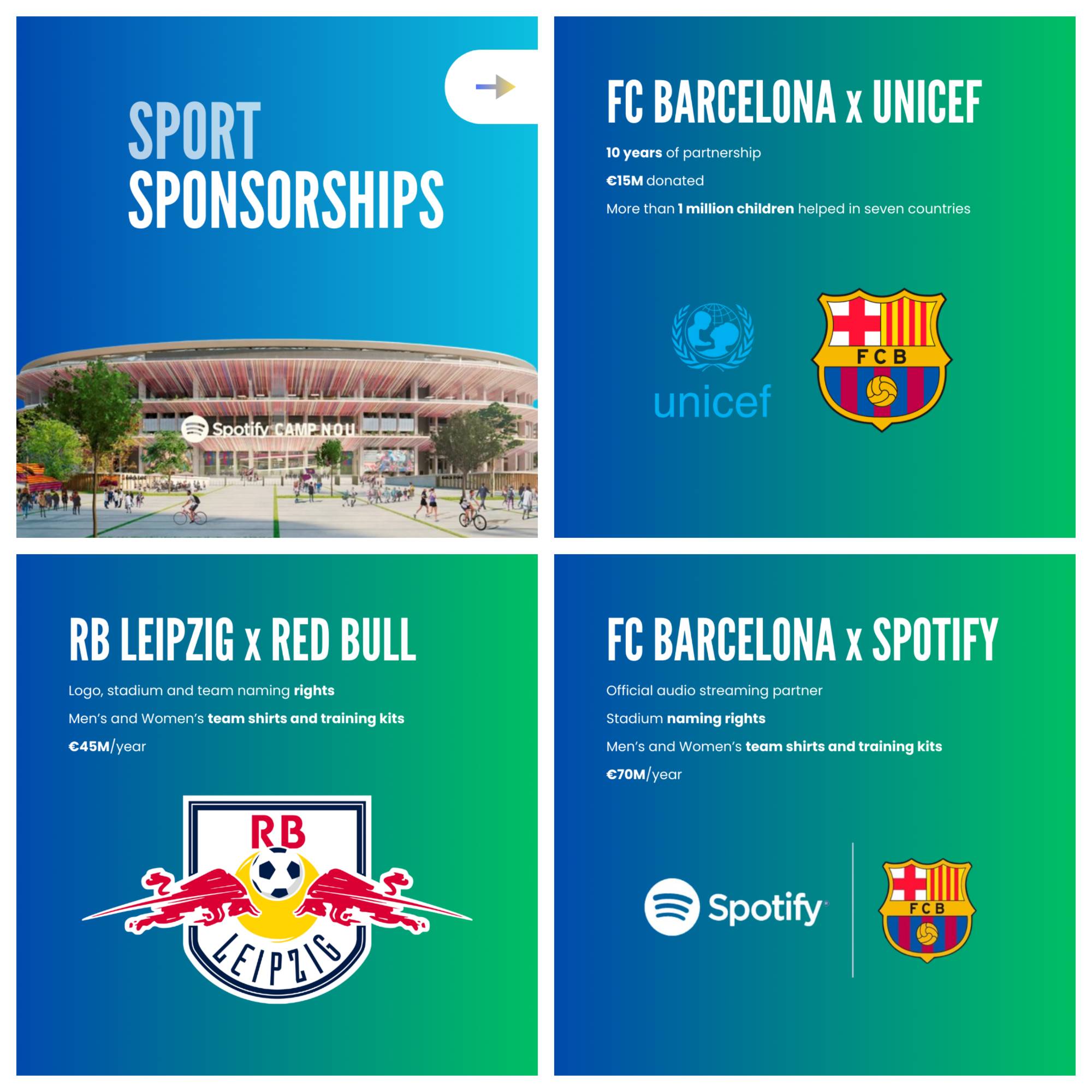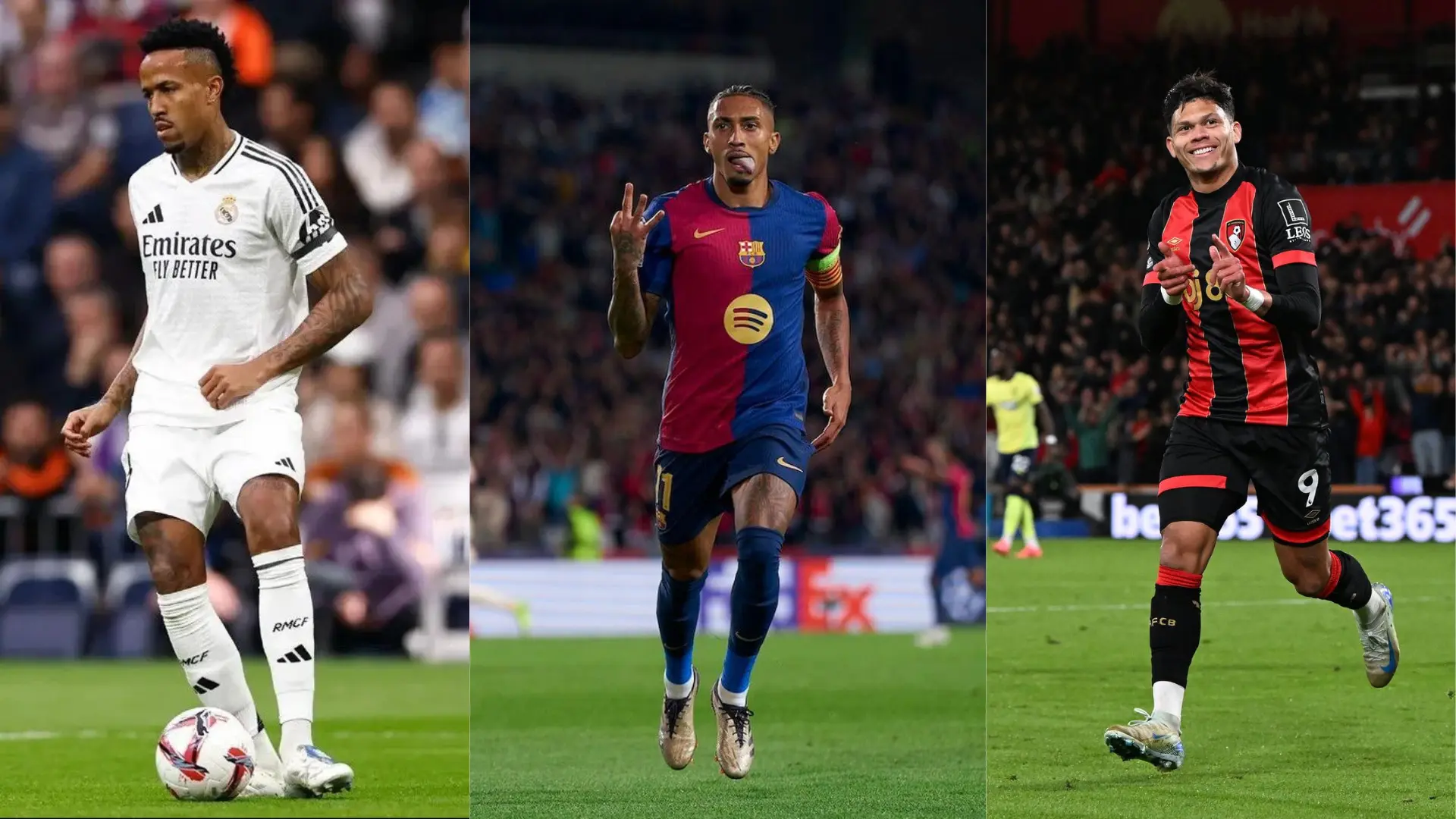What is a Sport Sponsorship and why are they important in Football?
In today’s football landscape, there’s no denying that sports sponsorships have become a vital part of the club and promoter’s strategy to build a brand presence through marketing tactics while leveraging each other capabilities and driving business forward. In this article, we’ll look at what is a sports sponsorship, how they’re materialized and how both parties use these types of agreements to their advantage.
Understanding Sports Partnerships
Sports sponsorship, at its core, represents a strategic and synergistic alliance between sports entities and brands. Its roots can be traced back to ancient Rome where patrons would sponsor athletes or events as a means of promoting their wealth and status. However, the modern concept of sports sponsorship began to take shape in the early 20th century with the rise of organized sports leagues and the emergence of mass media platforms like newspapers and radio. As sports gained popularity and audiences grew, brands recognized the opportunity to align themselves with the passion and loyalty of sports fans. From simple logo placements on jerseys and billboards, sports sponsorship has evolved to complex marketing campaigns that take full advantage of technological advancements and engage with their target audiences on a global scale.
Advantages for clubs and sponsors
Do the names “Emirates Stadium” (Arsenal), “Spotify Camp Nou” (Barcelona), “Allianz Stadium” (Juventus) and “Red Bull Arena” (RB Leipzig) sound familiar? That's because stadium naming rights, where brands secure naming rights for football stadiums, together with shirt sponsorship, where brands pay clubs to display their logos on players' jerseys during matches, are two of the earliest traditional sponsorship agreements still used today. For sponsors, these are extremely good opportunities to consistently engage with their audience. From every ticket sold to displaying their logo in hundreds of exhibitions a year to thousands of fans is highly valued as it attracts companies from every industry. To put things into perspective, in the “Big Five” Leagues, the (currently active) top 3 main shirt sponsors by deal value include FC Barcelona – Spotify (includes stadium naming rights), Real Madrid CF – Emirates and Paris Saint-Germain FC – Qatar Airways with the first two teams receiving 70M€ each and the French giant pocketing 68.5M€ yearly. In a game where so many variables contribute to the financial sustainability and capacity each season, such numbers are a testament to the potential of sponsorships as a revenue stream and one that clubs cannot overlook. From talent acquisition to investments in infrastructure, player development, and community initiatives, these are just some of the areas where this financial support can help expand the club's vision. And let's not forget brand visibility and recognition. Ever entered a Nike or Adidas website or store and seen the jersey of your favourite team? Well, they’re not simply there because Nike loves Liverpool and Adidas loves Real Madrid – they’re there to remind fans of their bond and every time you support one, you’re also helping the other.
Notable sponsorships in football history

Over the years there have been some memorable and groundbreaking sponsorships that have reshaped the sports marketing landscape, leaving a lasting impact on clubs, sponsors, and fans. Among these, Barcelona FC's partnership with UNICEF stands out as a pioneering move in 2006, as they became the first football club to feature a humanitarian organization's logo on their jerseys. This bold step highlighted Barcelona's commitment to social responsibility, using football as a platform for positive change and raising awareness for global issues such as children's rights and education. RB Leipzig's collaboration with Red Bull represents another unconventional approach to football sponsorship. Red Bull's ownership of the club has enabled them to implement a unique business model focused on youth development and talent scouting challenging traditional football hierarchies and establishing RB Leipzig as a competitive force in European football. More recently, Barcelona's partnership with Spotify has captured the attention of football fans worldwide. This innovative collaboration showcases the potential for technology and entertainment brands to integrate seamlessly into the football world, enhancing fan engagement and creating some of the coolest jerseys ever. Found this post interesting? Source: here.
P.S. For 2 months, the ScoutDecision team collected testimonials from scouts in our network about their jobs, the tools they use, etc. Now you can read the results for free here: Football Scouting Survey 2024



